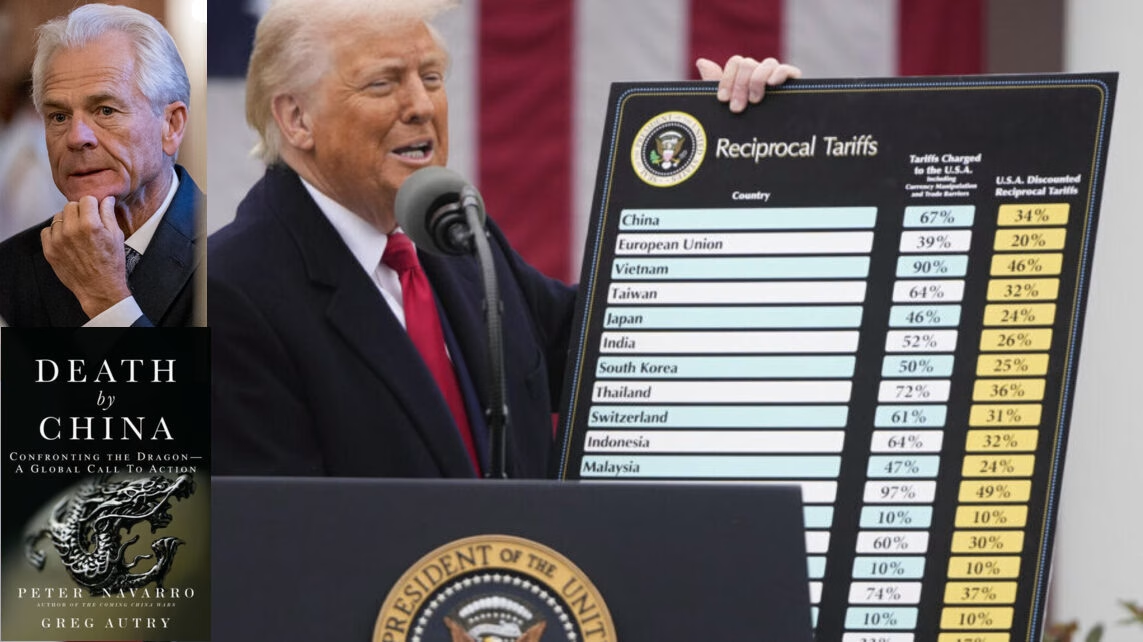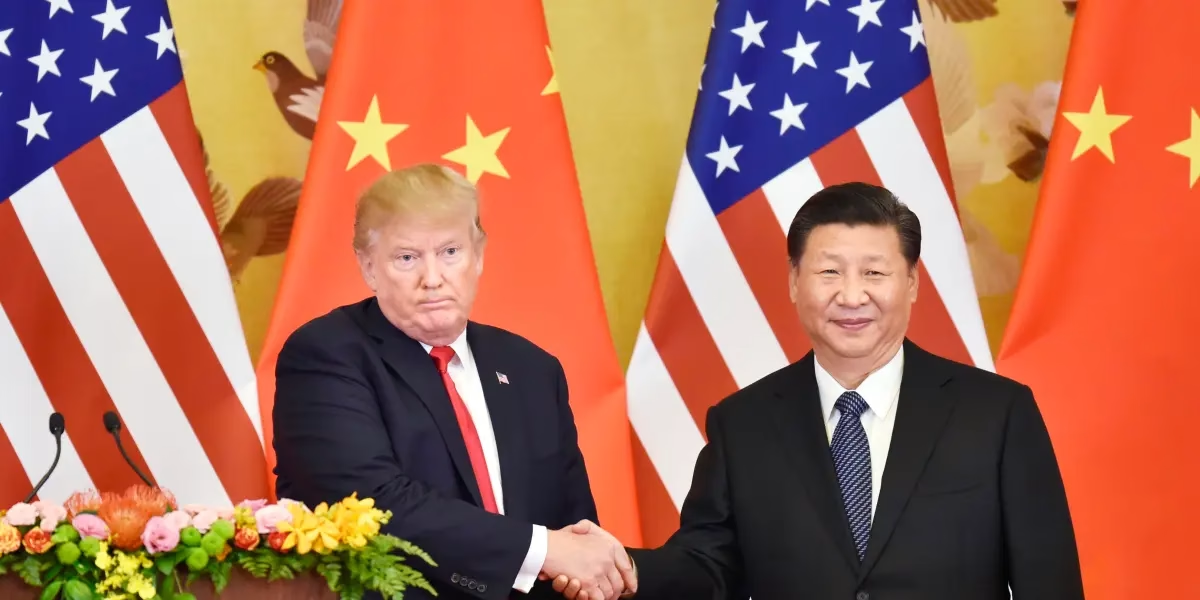By Mary Jones | Saturday, April 05, 2025 | 5 min read
In the early days of Donald Trump’s first presidential campaign, as the candidate outlined his broad-brush ideas about being “tough on China” and tackling America’s trade imbalance, there was a surprising gap: no formal economic team. According to insiders, Trump turned to his son-in-law, Jared Kushner, with a simple directive — find someone who could give his trade ideas some intellectual firepower.
Kushner didn’t consult policy veterans or economists. Instead, he opened Amazon.com and started scrolling book covers. One title caught his eye: Death by China, co-authored by Peter Navarro. The name alone sold it. Intrigued by its aggressive tone, Kushner reached out, and soon Navarro was advising the campaign.
Navarro, already known for his hawkish stance on China, quickly became a key architect of Trump’s protectionist agenda. He pushed for tariffs on steel, aluminum, and a slew of Chinese imports—policies that would redefine U.S. trade relations and spark fierce global retaliation.
But Navarro’s case for tariffs leaned on the supposed backing of an expert named Ron Vara—an economist he frequently cited in his books. There was just one problem: Ron Vara wasn’t real. The name is an anagram of “Navarro,” and the economist was entirely fictional.
According to The New York Times and Vanity Fair, Navarro referenced Vara in at least six publications. A memo attributed to Vara even made the rounds in Washington, advising Trump to “ride the tariffs to victory.” Navarro later insisted the character was satire—a literary device—but that explanation didn’t sit well once it became clear Vara’s “advice” helped shape real-world economic policy.
The consequences were anything but fictional. American farmers were hit hard by China’s retaliatory tariffs. Manufacturers faced rising costs. Analysts estimate the trade war wiped out as much as $6 trillion in global market value. The World Trade Organization and major business groups slammed the approach as chaotic and untethered from strategic planning.
Public sentiment has soured. Recent Reuters/Ipsos polling shows more than half of Americans disapprove of Trump’s trade policies. Sixty percent cite rising living costs as a major concern, with many doubting the administration’s competence in managing the economy.
And there’s fresh cause for concern. Since Trump announced a new wave of tariffs, global markets have wobbled. Some of the world’s wealthiest individuals watched billions evaporate from their portfolios—especially those tied to tech and international trade.
Elon Musk tops the list. On February 3, 2025, Tesla stock plunged 5%, shaving $11.8 billion off Musk’s net worth in a single day. Tesla’s global supply chain leaves it vulnerable to import taxes. Even CFO Vaibhav Taneja acknowledged the tariffs would likely dent profitability.
Jeff Bezos took a hit too. Since Trump’s return to the spotlight, Amazon stock has dropped 14%, costing Bezos $29 billion. Alphabet co-founders Larry Page and Sergey Brin have collectively lost $50 billion as shares fell over 7%. Mark Zuckerberg saw Meta’s gains evaporate, his fortune dropping by $7.6 billion since January.
These are more than just eye-popping numbers. They represent the real-world fallout of trade policies shaped in part by fiction.
Despite the scandal surrounding his sources, Navarro remained a central figure in Trump’s orbit—advising not just on trade, but on manufacturing and pandemic-era supply chains. His biggest impact, however, was shaping Trump’s tariff-heavy economic strategy, a policy with global shockwaves.
And yet, much of that strategy was propped up by a fake persona—Ron Vara. A character Navarro invented, cited as if real, and used to justify sweeping policy decisions. Even as he shrugged off Vara as satire, the damage was already done.
Now, as Trump flirts with another presidential run, Navarro’s ideas—and his dubious methods—may be making a comeback. With trillions lost and industries disrupted, many are left wondering: was the trade war built on anything real at all?
Neither Navarro nor Kushner—who famously discovered Death by China while browsing Amazon—have commented on the Ron Vara saga’s resurgence. But with another election season looming, voters and economists alike are re-examining how one fake expert helped steer a very real economic storm.
Sometimes, it seems, it all begins with a catchy book title and a phone call.
Copyright 2025 FN, NewsRoom.




